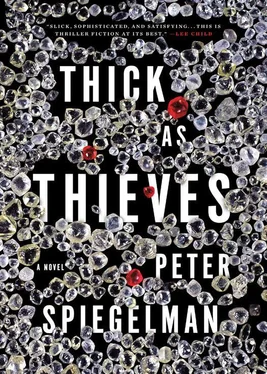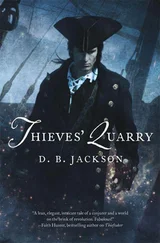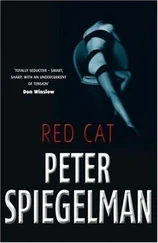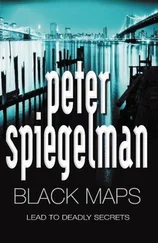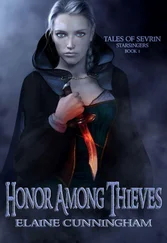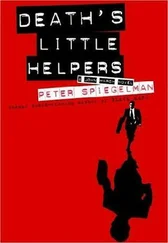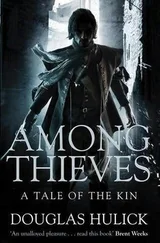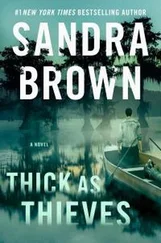Peter Spiegelman - Thick as Thieves
Здесь есть возможность читать онлайн «Peter Spiegelman - Thick as Thieves» весь текст электронной книги совершенно бесплатно (целиком полную версию без сокращений). В некоторых случаях можно слушать аудио, скачать через торрент в формате fb2 и присутствует краткое содержание. Жанр: Триллер, на английском языке. Описание произведения, (предисловие) а так же отзывы посетителей доступны на портале библиотеки ЛибКат.
- Название:Thick as Thieves
- Автор:
- Жанр:
- Год:неизвестен
- ISBN:нет данных
- Рейтинг книги:4 / 5. Голосов: 1
-
Избранное:Добавить в избранное
- Отзывы:
-
Ваша оценка:
- 80
- 1
- 2
- 3
- 4
- 5
Thick as Thieves: краткое содержание, описание и аннотация
Предлагаем к чтению аннотацию, описание, краткое содержание или предисловие (зависит от того, что написал сам автор книги «Thick as Thieves»). Если вы не нашли необходимую информацию о книге — напишите в комментариях, мы постараемся отыскать её.
Thick as Thieves — читать онлайн бесплатно полную книгу (весь текст) целиком
Ниже представлен текст книги, разбитый по страницам. Система сохранения места последней прочитанной страницы, позволяет с удобством читать онлайн бесплатно книгу «Thick as Thieves», без необходимости каждый раз заново искать на чём Вы остановились. Поставьте закладку, и сможете в любой момент перейти на страницу, на которой закончили чтение.
Интервал:
Закладка:
Her grave is near the top, by a stand of maples and a white stone bench, and with a view of distant woods and a nameless blue pond. It is not a family plot-no relatives lie to rest nearby-it is simply a place his mother picked out when she learned that she was dying. He wasn’t sure what about the site appealed to her. Maybe it was the pond, or maybe it was the company of strangers.
Her stone is granite-Dark Barre, from Vermont, Carr recalls from a corner of his exhausted brain. The chiseled inscription is simple: Andrea de Soto Carr. No dates; no epitaph; no embellishments of any kind. Carr rests a hand on the curved top. He doesn’t fight the hammering in his chest or the burning in his eyes, doesn’t resist the vertigo. It’s a much diluted version of the feeling he’d had, at age fourteen, when his father told him she was gone. The rushing in his ears, the ground opening beneath him, the free fall, the sense that there was no bottom. There’s something consoling in the memory of that initial terror. He’d survived it once; he could do it again.
The time between her diagnosis and her death was short-a matter of months-and Carr spent it sleepwalking. His vision, it seemed, worked only on things very close-his hands, his feet, a book-or very far away, but not in the middle distances, no place other people might occupy. Other people were an abstraction-like shadow puppets. Most of what they said seemed irrelevant or garbled, and he himself said very little in response.
What he remembers best of his mother from that time are her hands, white and narrow, strong until the end. She took up knitting again, something she said she’d done when she was younger. He remembers the white hands working, the skeins of dark wool, the click of the needles, the pieces she made that were neither scarves nor hats, but simply long, dark panels. He remembers too the streaks of gray that appeared, overnight, in her jet-black hair, and how her collarbones became so pronounced-the bones of a ship, laid bare by a storm. Denial was not a word he knew in this context, but later someone explained.
He can’t look for too long at the stone, and so he focuses on the flowers placed beneath it-a wilting bouquet of gladiolas in yellow, pink, and white. Her favorite flowers, in her favorite colors-the same as the bunch he’s holding now. He guesses that the older ones have been here for a day.
38
It’s the white stone bench that does it. He sits on it, in the shade, for some time, looking at the flowers on her grave-the ones he brought and the ones his father left there. He runs his hand over the smooth stone, lets the coolness seep into his fingers. He studies the veins and seams-like threads-in the marble. He remembers her knitting, the coiled wool. He lets his eyes close and listens to the patrolling bees. He lets Eleanor Calvin’s voice echo. Something about a vacation, about a fairy tale-King Midas and a maze. And then his eyes are open again, and he’s up from the bench, trotting down the hill toward his rental car.
There are still lawn tickets available for the Boston Symphony Orchestra concert, and Carr buys one, but declines a program. The music will not start for hours, but the manicured lawns of Tanglewood are already busy with concertgoers spreading blankets on the grass, laying out picnics, pursuing their wandering toddlers. Carr sticks to the gravel paths and makes his way south and west, toward the formal gardens. It’s been nearly thirty years since he was last here, but somehow he remembers the way.
The gardens are bordered by boxwood hedges, as high and thick and dark as they are in Carr’s memory: looming green walls; gnarled, intricate roots; and, cut at intervals in the hedge, portals so narrow that even children must stoop to pass. Carr turns sideways and ducks low, but branches catch at his shirt.
It is quiet on the other side of the hedge, and the air is still. The boxwoods are shorter inside the garden, but high enough that the aisles between them seem narrow and clutching. Certainly Carr remembers them that way, remembers running headlong down those corridors in the fading light, remembers the thrill and fear, the sensation of walls closing in, the blind curves, sharp turns, dead ends. Remembers it as a maze-a labyrinth, his father called it.
Mrs. Calvin heard it wrong: not Midas, but Minos -King Minos, of Crete. Not a fairy tale, but a myth. He remembers his father’s voice, chasing behind him, calling, in a bad imitation of Boris Karloff: “Beware the labyrinth. Beware the Minotaur.” Carr was six. His father had been thinking about leaving the Foreign Service and was interviewing with the Economics Departments of several colleges in New England. They’d made a family trip of it. He’d never seen his parents so relaxed before, or ever again.
He’s moving at a run when he comes to the white marble bench. It’s at the far side of the garden, where two boxwood lanes empty into a clearing. It’s broad and smooth, with a high curved back and a worn inscription, and it’s cracked and stained by weather and much use. His father sits at one end, one leg crossed over the other, arms folded in his lap. He’s studying the lawn, and he’s so still and pale he might be made of marble himself.
Arthur Carr looks at his son without surprise, and with a faint, wry smile. “Minotaur chasing you again?”
“What the hell do you think you’re doing?” Carr says, catching his breath. “Where the hell have you been?”
His father scratches his head and narrows his gray eyes. “Have you eaten lunch? I could use a sandwich.”
At the diner, his father orders a roast beef on rye. He tries to order a scotch with it, and has some trouble with the waitress’s explanation that beer is the best she can do. In the end he has a Heineken. Carr orders tuna fish, and goes outside to make phone calls.
He watches his father through the window while he talks to the local police and to Mrs. Calvin, and makes arrangements for the Volvo to be towed to a garage. Carr glances at his missed calls list, and sees more messages from Valerie and Mike, and one-an hour earlier-from Tina. He goes back inside.
Arthur Carr’s reading glasses are perched on the end of his nose, and he’s scanning the ads and the children’s games printed on the paper place mat. “Calling the office?” he asks, as his son slides into the booth. “I expect you’ll be getting back soon.”
“It wasn’t work. It was about you.”
“Not a particularly compelling subject,” his father says, chuckling. “Who’s interested in that?”
“Mrs. Calvin, for one. She was worried sick.”
“Damned dramatic. Doesn’t she have anything better to do? Shouldn’t she be packing?”
“For chrissakes, you can’t just take off like that.”
“Nonsense-people do it all the time. They’re here, and then-poof-they’re gone, just like that.” There’s a connect-the-dots picture on the place mat, and his father moves his finger from number to number. “Christ, some people can vanish while they’re standing right in front of you. They’re in the very same room, but it’s like they’re not there at all. She had that trick down cold.”
“Mrs. Calvin?”
His father looks up and scowls. “Don’t be thick-you know who I’m talking about. You’re just like her, for chrissakes-playing dumb when you want to, but taking it all in. She was a hell of a poker player, you know.”
“I didn’t know that.”
His father squints at him behind his glasses. “So, maybe not taking it all in,” he says, and a sly smile-as at a private joke-crosses his face. “It’s her birthday coming up. Did you remember?”
“On Tuesday.”
“It was always hard to shop for her. Who knew what she wanted? Nothing I had to offer.” The smirk again, angrier this time. “For example, I never knew her taste in cigarette lighters. And I was never much of a tennis player, either. Always hated doubles.”
Читать дальшеИнтервал:
Закладка:
Похожие книги на «Thick as Thieves»
Представляем Вашему вниманию похожие книги на «Thick as Thieves» списком для выбора. Мы отобрали схожую по названию и смыслу литературу в надежде предоставить читателям больше вариантов отыскать новые, интересные, ещё непрочитанные произведения.
Обсуждение, отзывы о книге «Thick as Thieves» и просто собственные мнения читателей. Оставьте ваши комментарии, напишите, что Вы думаете о произведении, его смысле или главных героях. Укажите что конкретно понравилось, а что нет, и почему Вы так считаете.
